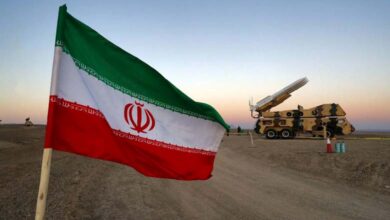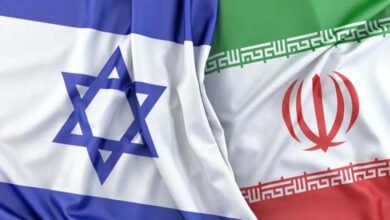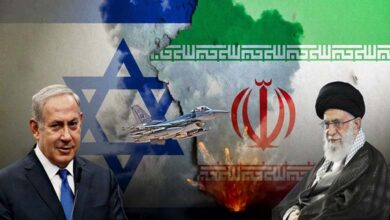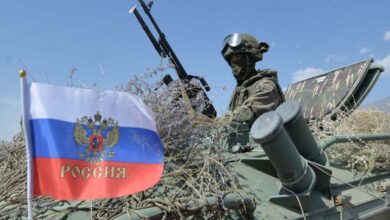After Iraqi Factions Abandoned It, Khamenei: Iran Does Not Need Proxies in the Region
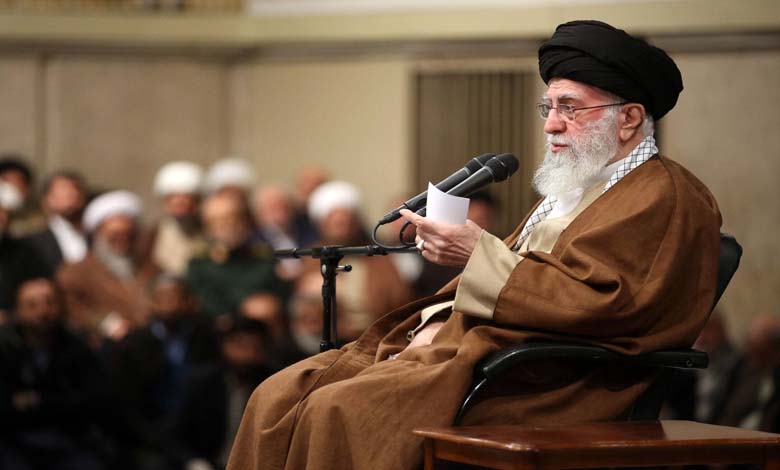
Iran faces a real test of its ability to maintain regional influence amid changing political and military dynamics. The retreat of traditional allies and their withdrawal from the scene make it challenging for Tehran to continue its strategies of using proxy forces to achieve its objectives.
-
Iran Relies on Houthis and Iraqi Militias to Support Gaza
-
Leaks from the Secret Meeting: Iran Refuses to Support Hezbollah and its Iraqi Militias Against Israel
Nevertheless, Iran remains a resilient player and may seek to redefine its regional role through new strategies relying on diplomacy or the use of economic and security tools. However, the success of these strategies will depend on its ability to overcome the internal and external challenges it faces.
Iran Does Not Need Proxies in the Region
Iranian Supreme Leader Ali Khamenei recently addressed a group of supporters, asserting that Iran does not need proxy forces in the region to execute its policies. He added, “If we ever decide to act against the enemy, we won’t need proxies.”
-
Withdrawal of Coalition Forces from Iraq: A Renewed Demand Driven by Iran
-
Associated Press: Iran reinforces deployment of its forces and heavy weapons across its borders with Iraq
These statements come at a sensitive time, as Iran’s regional influence has visibly declined with several allied forces withdrawing or significantly reducing their activities. This rhetoric may reflect the Iranian leadership’s efforts to alleviate internal concerns about the loss of allies and its impact on Iran’s regional strategies.
Iraqi Factions Withdrawing from the Scene
One of the most significant developments illustrating this decline is the announcement by the “Sayyed al-Shuhada Brigades,” an Iranian-backed armed faction in Iraq, of halting operations against Israel.
-
US agency: Iran threatened to invade Iraq by land
-
A drone killed a commander of Iran’s Revolutionary Guards near the Iraqi-Syrian border
The faction’s spokesperson, Kazem al-Fartousi, explained that the decision was influenced by internal and external factors, including the ceasefire between Hezbollah and Israel, as well as reservations expressed by Iraqi partners about escalating operations.
This development highlights the diminishing role of Iraqi factions as part of what is known as the Iran-backed resistance axis. With shifting power dynamics in Iraq, these factions appear compelled to scale down their activities to ensure their survival amid U.S. pressures and Iraqi government efforts to curb their influence.
-
Protests in Iraq…They burned and destroyed the headquarters of parties loyal to Iran with bulldozers
-
Iranian Plans to Supply Hezbollah with Weapons via Air Routes
The Crisis in Syria and Its Impact on Iranian Influence
The developments in Iraq are not the only factors impacting Iran’s allies. In Syria, events have further complicated the situation. After years of supporting the Syrian regime, Iran’s ability to maintain the same level of influence is increasingly in doubt, especially given changes in the regional and international landscape.
The withdrawal of Iraqi factions from Syria to focus on domestic affairs reflects a retreat in Iranian influence, which has long relied on these groups to ensure its military and economic presence in the region.
-
Armed factions have become a key player in the Syrian landscape – Details
-
Secret Turkish Deals with Russia and Iran Accelerated al-Assad’s fall
The Houthis: Iran’s Last Card?
With the diminishing role of traditional allies in Iraq, Syria, and Lebanon, Houthi militias in Yemen appear to be the last leverage Tehran can rely on. The Houthis remain a powerful arm of Iran in the Gulf, continuing to threaten international maritime security.
However, even this card faces significant challenges due to international efforts to promote regional stability and economic and military pressures on the Houthis.
Iranian expert Mohammad Khanji stated that the dissolution of armed factions in Iraq is a major challenge that cannot be easily implemented.
-
Hama Countryside: Massive Syrian Army Reinforcements and “Mass Fleeing” of Militants
-
Secret Clauses in Ceasefire Agreement Restrict Iran’s Actions in Lebanon
He added that the Iraqi resistance represents a national movement with internal roots rather than merely a tool in Iran’s hands, despite Tehran’s support for these factions.
Khanji highlighted that previous Iraqi governments had relied on Iran to defuse tensions, particularly with U.S. forces, noting that Tehran understands the importance of maintaining Iraq’s stability as part of its national security.
Khanji further pointed out that the current situation in Iraq, marked by escalating security threats, makes the idea of dissolving armed factions unrealistic for the time being, affirming that Iraqis themselves will continue to support this resistance as long as challenges to the country’s security and stability persist.
-
Mystery Surrounding Khamenei’s Health Revives Rumors of His Death and Succession
-
Meager Salaries and Stark Discrimination: Why Are Syrians Defecting from Iranian Militias?


